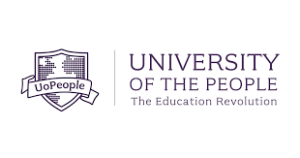Identifying a cheap university in Canada can prove difficult sometimes. Canada is increasingly becoming a top destination for international students seeking high-quality education. It is known for its diverse and inclusive society, and offers a unique blend of academic excellence and cultural richness. However, the cost of education abroad can be a significant concern for many students and their families. Finding affordable universities that do not compromise on the quality of education is crucial. This balance allows students to pursue their academic goals while managing their finances effectively.
Benefits of Studying in Canada
-
High-Quality Education System
Canada boasts one of the highest standards of education globally, with its universities frequently ranking among the best in the world. The country invests heavily in its education system, ensuring that students receive a comprehensive and rigorous academic experience. Canadian degrees, diplomas, and certificates are widely recognized and respected by employers and educational institutions worldwide.
-
Multicultural Environment
Canada is celebrated for its multicultural society, which welcomes people from all corners of the globe. This diversity enriches the educational experience as students interact with peers from different cultural backgrounds, enhancing their global awareness and understanding. The multicultural environment also means that students can enjoy various cultural festivals, cuisines, and traditions, making their stay in Canada even more fulfilling.
-
Work Opportunities During and After Studies
International students in Canada have the opportunity to work while studying, which helps them gain valuable work experience and manage their living expenses. The Canadian government allows students to work up to 20 hours per week during the academic term and full-time during scheduled breaks. Additionally, upon graduation, students can apply for a Post-Graduation Work Permit (PGWP), which allows them to work in Canada for up to three years, depending on the length of their study program.
-
Pathway to Permanent Residency
One of the most attractive aspects of studying in Canada is the potential pathway to permanent residency. Canada offers various immigration programs that facilitate the transition from temporary resident status (as a student) to permanent residency. Programs such as the Canadian Experience Class (CEC) and the Provincial Nominee Program (PNP) are designed to retain skilled graduates who can contribute to the Canadian economy. This pathway provides a significant incentive for students who wish to build a future in Canada after completing their studies.
10 Cheap Universities in Canada for International Students
1. University of the People (UoPeople)

-
Tuition Fees: Free for tuition; only minimal fees for exams and applications.
-
Description: A tuition-free, accredited online university offering degree programs in Business Administration, Computer Science, and Health Science.
-
Key Programs and Faculties: Business Administration, Computer Science, Health Science, and Education.
-
Location Benefits: Online; flexibility to study from anywhere in the world.
-
Scholarships: Various scholarships are available for financially disadvantaged students.
-
Unique Features: First non-profit, tuition-free, American-accredited online university.
-
Notable Alumni: Various professionals in global industries.
Application Deadlines: Rolling admissions with multiple terms throughout the year.
Additional Info: UoPeople Admissions
2. University of Manitoba

-
Tuition Fees: Approximately CAD 16,000–18,000 per year.
-
Description: A public research university located in Winnipeg, Manitoba, known for its strong research programs.
-
Key Programs and Faculties: Agriculture, Engineering, Business, and Medicine.
-
Location Benefits: Affordable cost of living; vibrant cultural scene.
-
Scholarships: International Undergraduate Student Entrance Scholarships, International Graduate Student Scholarships.
-
Unique Features: Home to one of the largest indigenous student populations.
-
Notable Alumni: Nobel Laureate James Peebles, politician Lloyd Axworthy.
Application Deadlines: Varies by program; generally between January and March for Fall intake.
Additional Info: UM Admissions
3. University of Prince Edward Island

-
Tuition Fees: Approximately CAD 13,000–15,000 per year.
-
Description: A small, public university located in Charlottetown is known for personalized education.
-
Key Programs and Faculties: Veterinary Medicine, Business, Science, and Arts.
-
Location Benefits: Low cost of living, picturesque landscapes.
-
Scholarships: UPEI Entrance Scholarships, Graduate Scholarships.
-
Unique Features: Strong co-op programs and community engagement.
-
Notable Alumni: Politician Catherine Callbeck, author David Weale.
Application Deadlines: Typically March 1 for September intake.
Additional Info: UPEI Admissions
4. Memorial University of Newfoundland

-
Tuition Fees: Approximately CAD 11,500 per year.
-
Description: Known for its exceptional research programs and affordable tuition, it is located in St. John’s.
-
Key Programs and Faculties: Marine Studies, Engineering, Medicine, and Business.
-
Location Benefits: Low cost of living; vibrant arts and music scene.
-
Scholarships: Entrance Scholarships, Graduate Fellowships.
-
Unique Features: Largest university in Atlantic Canada.
-
Notable Alumni: Premier Danny Williams, author Lisa Moore.
Application Deadlines: Generally March 1 for Fall admission.
Additional Info: MUN Admissions
5. University of Guelph

-
Tuition Fees: Approximately CAD 20,000 per year.
-
Description: Known for its focus on life sciences and agricultural programs, it is located in Guelph, Ontario.
-
Key Programs and Faculties: Veterinary Medicine, Agriculture, Environmental Science, and Business.
-
Location Benefits: Mid-sized city with a strong community feel.
-
Scholarships: International Undergraduate Entrance Scholarships, Graduate Scholarships.
-
Unique Features: Emphasis on research and innovation in food and agriculture.
-
Notable Alumni: TV host Lauren Toyota, author John Baird.
Application Deadlines: Typically January for Fall intake.
Additional Info: UofG Admissions
6. Université de Saint-Boniface

-
Tuition Fees: Approximately CAD 7,500–9,000 per year.
-
Description: A French-language university located in Winnipeg, Manitoba, affiliated with the University of Manitoba.
-
Key Programs and Faculties: Education, Nursing, Business Administration, and Arts.
-
Location Benefits: Affordable living in a bilingual community.
-
Scholarships: Entrance Scholarships, Program-Specific Scholarships.
-
Unique Features: Strong Francophone culture and heritage.
-
Notable Alumni: Various professionals in Francophone communities.
Application Deadlines: Generally, February is for Fall intake.
Additional Info: USB Admissions
7. Brandon University

-
Tuition Fees: Approximately CAD 8,000 per year.
-
Description: A small, public university located in Brandon, Manitoba, known for its personalized learning environment.
-
Key Programs and Faculties: Music, Education, Nursing, Arts and Sciences.
-
Location Benefits: Affordable cost of living; small-town feel.
-
Scholarships: Entrance Scholarships, Departmental Scholarships.
-
Unique Features: Strong programs in music and fine arts.
-
Notable Alumni: Author Robert Stead and politician Stanley Knowles.
Application Deadlines: Varies by program; generally March for Fall intake.
Additional Info: Brandon U Admissions
READ MORE:
Full List Of Universities In Canada Without Application Fees
Join our WhatsApp ChannelCanada Announces Visa-Free Access For 13 Countries
Canada Introduces Permanent Residency-On-Arrival Programme For Caregivers
8. Concordia University

-
Tuition Fees: Approximately CAD 20,000 per year.
-
Description: A comprehensive public university located in Montreal, Quebec, known for its diverse student body and innovative programs.
-
Key Programs and Faculties: Business, Engineering, Fine Arts, and Social Sciences.
-
Location Benefits: Located in Montreal, a vibrant, multicultural city with relatively low cost of living,.
-
Scholarships: International Student Scholarships, Graduate Fellowships.
-
Unique Features: Emphasis on experiential learning and community engagement.
-
Notable Alumni: Filmmaker Denis Villeneuve and journalist Melissa Fung.
Application Deadlines: Typically February 1 for Fall intake.
Additional Info: Concordia Admissions
9. Simon Fraser University

-
Tuition Fees: Approximately CAD 29,000 per year.
-
Description: A public research university located in Burnaby, British Columbia, known for its strong co-op programs.
-
Key Programs and Faculties: Business, Computing Science, Health Sciences, Engineering.
-
Location Benefits: Close proximity to Vancouver, offering various lifestyle and career opportunities.
-
Scholarships: International Student Entrance Scholarships, Graduate Fellowships.
-
Unique Features: Known for its stunning campus and comprehensive co-op programs.
-
Notable Alumni: Politician Jack Layton, author Terry Fox.
Application Deadlines: Generally January 31 for Fall intake.
Additional Info: SFU Admissions
10. Athabasca University

-
Tuition Fees: Approximately CAD 10,000–12,000 per year.
-
Description: An open university in Alberta that specializes in online distance education.
-
Key Programs and Faculties: Business, Health Administration, Education, and Arts.
-
Location Benefits: Flexibility to study from anywhere.
-
Scholarships: Various scholarships and bursaries are available for distance learners.
-
Unique Features: Leader in distance education with a wide range of online programs.
-
Notable Alumni: Include author Janet E. Healy and educator Stephen Murgatroyd.
Application Deadlines: Rolling admissions with multiple start dates throughout the year.
Additional Info: Athabasca Admissions
General Tips for International Applications
-
English Proficiency: Most universities require proof of English proficiency (e.g., TOEFL or IELTS).
-
Transcripts: Submit official high school or previous university transcripts.
-
Financial Proof: Some universities may require proof of financial support.
-
Application Fees: Be prepared to pay non-refundable application fees.
-
Deadlines: Adhere strictly to application deadlines to avoid disqualification.
-
Visas: Once admitted, apply for a study permit or student visa for Canada.
Overview of Available Scholarships and How to Apply
University-Specific Scholarships: Many Canadian universities offer scholarships to international students based on academic merit, financial need, or specific criteria such as field of study or country of origin. Check the financial aid section of the university’s website for details.
-
Application Process: Typically involves submitting an application form, academic transcripts, and sometimes letters of recommendation or personal statements.
Government Scholarships: The Canadian government provides scholarships for international students, such as the Canada Graduate Scholarships and Vanier Canada Graduate Scholarships.
-
Application Process: Details vary by program but often require academic transcripts, research proposals, and letters of reference.
Private Scholarships: Organizations and foundations offer scholarships based on various criteria, including academic excellence, leadership, community involvement, and specific areas of study.
-
Application Process: Each organization will have its own application process, which generally includes an application form, essays, and letters of recommendation.
Country-Specific Scholarships: Some countries have agreements with Canada to provide scholarships for their citizens. Check with your home country’s education department or the Canadian embassy for available programs.
Part-Time Work Opportunities and Student Visas
-
Part-Time Work Opportunities:
-
On-Campus Jobs: Many universities offer on-campus job opportunities for international students, such as positions in libraries, cafeterias, or administrative offices. These jobs often have flexible hours that accommodate students’ schedules.
-
Off-Campus Work: International students can work off-campus for up to 20 hours per week during academic sessions and full-time during scheduled breaks, provided they hold a valid study permit and are enrolled in a full-time program.
-
Co-op Programs and Internships: Some programs include co-op placements or internships, allowing students to gain practical work experience while earning money.
-
2. Student Visas:
-
Study Permit: International students need a study permit to study in Canada. You must have a letter of acceptance from a designated learning institution to apply. The application can be submitted online or through a visa application center in your home country.
-
Work While Studying: With a valid study permit, you can work on or off-campus without a separate work permit. Ensure your permit includes the condition allowing you to work.
-
Post-Graduation Work Permit (PGWP): After completing your studies, you may be eligible for a PGWP, which allows you to work in Canada for a period equivalent to the length of your study program, up to a maximum of three years.
Tips on Finding Affordable Accommodation
-
University Housing: Many universities offer on-campus housing options that can be more affordable and convenient for foreign students. Apply early, as spaces are limited.
-
Shared Accommodation: Consider renting a room in a shared house or apartment. Websites like Kijiji, Craigslist, and university housing boards often list shared accommodations.
-
Renting a Basement Apartment: These are often more affordable than standalone apartments.
-
Suburbs: Living slightly outside major city centers can significantly reduce rental costs. Public transportation can help you commute efficiently.
-
Temporary Housing: Start with temporary accommodation like hostels or Airbnb until you find a permanent place.
-
Negotiating Rent: Some landlords may be open to negotiating rent, especially if you sign a longer lease or agree to take care of minor maintenance.
Healthcare and Insurance Considerations
-
Provincial Health Insurance: Most provinces offer health insurance to international students. Apply for a health card as soon as you arrive.
-
Ontario (OHIP): International students are not covered. They need private insurance or university-provided plans.
-
British Columbia (MSP): Available to international students. There is a monthly fee.
-
Quebec: Some countries have reciprocal agreements covering their citizens under Quebec’s health plan.
-
-
Private Insurance: If provincial health insurance is not available, purchase private health insurance. Many universities offer health insurance plans for international students.
-
University Health Services: Utilize health services provided by your university. These can include doctor visits, mental health services, and health workshops.
Cultural Adjustment and Support Services are Available
-
International Student Offices: Most universities have offices dedicated to supporting international students with orientation, academic advice, and cultural integration.
-
Mentorship Programs: Participate in mentorship programs where senior students help new international students adjust to life in Canada.
-
Language Support: Many universities offer English or French language support services to help international students improve their language skills.
-
Counseling Services: Universities often provide free counseling services to help students deal with homesickness, culture shock, and other personal issues.
-
Student Organizations: Join international student organizations, cultural clubs, and societies to meet people and build a social network.
-
Workshops and Events: Attend workshops on academic skills, job searching, and cultural events to better understand Canadian culture and improve your experience.

















Follow Us